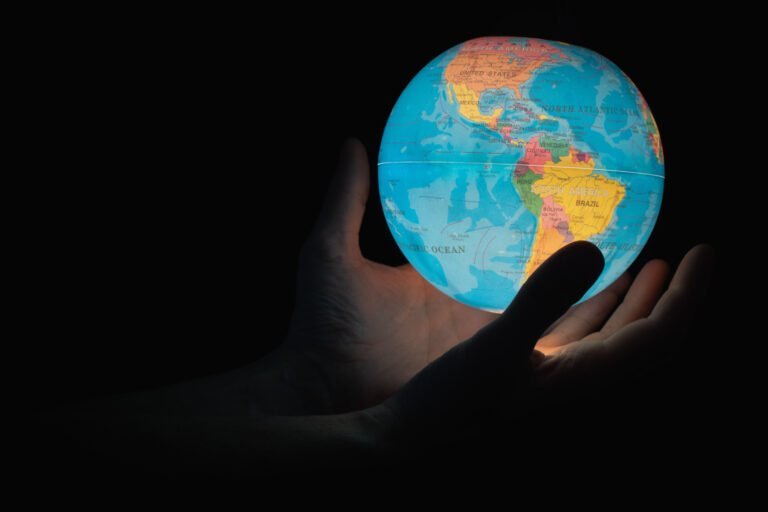In today’s climate you can shop, search or trying something new, whilst also making a positive change to the world, and it won’t cost you a thing. The companies listed in this article are just a few who are making a difference thanks to you.
Ecosia
Simply put, Ecosia is a search engine with 80% of its profits going towards planting and protecting trees. But is it really that simple?
Starting in 2009, Ecosia is a search engine that works in partnership with Microsoft Bing to support various tree projects around the world
Ecosia’s search results also have a “green leaf” symbol to highlight companies that are eco-friendly. Additionally, it provides a tree counter in the corner – which counts how many searches you’ve done. According to Ecosia, it typically takes 45 searches to plant-a-tree, but it’s surprising how quickly you reach this number.
What’s great about Ecosia is their transparency; they want to tell you how their plant a tree scheme works. First of all, Ecosia makes its profits through people clicking on adverts within their search results, these results are clearly labelled with the word ‘Ad’ beside them. These ads come through the search engine Bing, and as such Bing proportion a part of the ad revenue to Ecosia. How much they get depends on the ad, or, should people purchase an item through the advert, Ecosia gets a proportion of the purchase price. Either way, this is where Ecosia gets its profits and gives at least 80% of it a month towards planting trees.
They also have their own online store which predominantly sells clothes, with a whopping 100% of their revenue spent on tree projects.
In truth, no other search engine offers the same as Ecosia, and at a record of one tree every second.
AmazonSmile
It’s safe to say not enough people know about AmazonSmile; which is a way to shop on Amazon while giving back to your chosen charity – at no extra cost to you. So how does it work? First, log onto smile.amazon.com, although you can also access it on your normal amazon account through a search in the product bar.
When first visiting AmazonSmile it will ask you to select a charity of your choice, and trust me there are hundreds and thousands to choose from. In fact, there’s over one million with many more joining each year.
Having selected your charity, search for items you want to buy. The search results will show exactly the same products and prices as on Amazon’s original site, but here part of the purchase price is donated to your chosen charity. Sadly though, not every product listed has the charity offer, its only on certain eligible purchases – although there’s still tens of millions to choose from. When you click on a product and it’s eligible for charity donation, it will state “eligible for SmileAmazon donation”. This wording is shown just below the product price and above the product’s bullet points. But what does this mean? It means that a percentage of the purchase price will go to your chosen charity, and again a reminder; the purchase price stays the same as it is on Amazon’s original site, it’s just that now some of it will go to charity. However, this is not designed to replace your usual charity donations, it’s just a bonus tip, with AmazonSmile donating 0.5% of the product’s net purchase price to the charity you’ve chosen. Pretty great hey?
Sadly since publication Amazon has stopped AmazonSmile – hopefully they will bring it back again or at least something like this.

Image is courtesy of Reynardo Etenia Wongso from Unsplash
More Companies That Give Back
More and more companies are giving back thanks to your purchases, whether it’s a case of; for every pair of glasses bought, one is donated; providing educational resources, access, support; or essential needs such as clothes, shoes, food. It’s also worth checking out whether the companies you buy from are Fairtrade, sustainably sourced, and provide charitable support.
Take for example United by Blue; a clothing company, who for every product purchased remove one pound of rubbish from the sea and waterways. So far, they’ve cleared over three and a half millions pounds of it. You can also volunteer to be a part of their clean-up action. In addition to this they also try to ensure ‘ethical manufacturing’ and the use of ‘sustainable materials’.
Then there’s TOMS, a footwear company, who during the pandemic partnered with the charity The Mix in offering support of a counsellor for those under 25, regardless of whether you’ve bought anything from them or not. For a stylish shoe company, they’ve also walked those extra miles; donating nearly 100 million shoes, over 780,000 sight restorations and more than 720,000 weeks of safe water – since being founded in 2006. Originally starting with the idea that for every pair of shoes sold, another will be donated, they now aim to give away at least one third of their annual net profits to grassroot organisations.
Who Gives A Crap – apart from having the best name ever! – is a toilet-paper maker of epic proportions, who donate a whopping 50% of their profits in providing access to clean water and building toilets for those in need. Without this basic requirement hundreds of thousands of children die every year from diarrhoeal diseases. It’s therefore good they give a crap, not to mention the products of this toilet-roll manufacturer are sustainably made and eco-friendly. What a treat!
1% for the Planet
This collective of companies, more than 3,400 and still growing, have dedicated to give 1% of their sales to the environment. They also provide individual memberships for people to commit to giving 1% of their annual salary. Since 2002, 1% for the Planet has contributed over $282 million to environmental causes and organisations (figure obtained from 2020 annual report).
These companies can choose to fulfil their pledge of 1% by having up to 50% of it completed through volunteering (or in the use of their services). Should they choose to volunteer, this is calculated from the number of hours their employees are actively volunteering, and their average pay per hour. It’s therefore done very fairly. There’s also the option for companies to choose where the money goes – with thousands of non-profit organisations from 64 countries.
The objective for 1% for the Planet can be broken down into six areas; Climate, Land, Water, Food, Wildlife and Pollution.
Some of its members include Honest Tea and Pukka (both companies are sustainable, organic and fair-trade) and Patagonia; a sports fashion company with a very hands-on approach in protecting the environment, from grants, supporting activists, to connecting individuals with organisations and petitions – through its Patagonia Action Works. In fact, Patagonia’s founder Yvon Chouniard also helped start 1% for the Planet, along with Craig Matthews the founder of Blue Ribbon Flies.

Image is courtesy of NASA from Unsplash
From search engines to shopping online, these are just a few companies that give a lot and cost you nothing.
Know of other organisations, or ways we can help our world? We’d love to hear from you.
Please send us your article through our submissions page.







